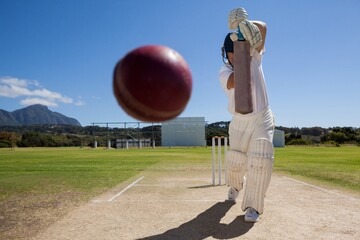Exploring the impact of cognitive biases on IPL betting decisions
Khiladiadda, Sky247:Cognitive biases are inherent shortcuts in our thinking processes that can lead to errors in judgment and decision-making. These biases stem from the brain’s attempt to efficiently process information by relying on quick judgment rather than rational analysis. Understanding these biases is crucial as they can shape our perceptions, attitudes, and behaviors in various aspects of life, including betting in sports like the Indian Premier League (IPL).
One common cognitive bias relevant in the context of IPL betting is confirmation bias. This bias involves seeking out information that confirms our pre-existing beliefs or expectations while ignoring evidence that contradicts them. In the context of betting, individuals may focus on data that supports their preferred predictions for an IPL match, leading them to overlook crucial information that could alter their decision-making process. This tendency can result in poor betting outcomes due to a lack of consideration for all possible factors influencing the match’s outcome.
Confirmation Bias in IPL Betting
Confirmation bias in IPL betting refers to the tendency of individuals to favor information that confirms their pre-existing beliefs or expectations while ignoring contradictory evidence. In the context of cricket betting, this bias can lead punters to overvalue data that supports their predicted outcome, dismissing information that suggests otherwise.
For instance, a bettor who strongly believes that a particular team will win in an IPL match may seek out statistics, news, or opinions that align with their prediction, while discounting alternative viewpoints or performance indicators that point to the opposing team’s potential success. This selective attention can cloud judgment and result in skewed decision-making processes when placing bets on cricket matches.
Anchoring Bias and its Influence
Anchoring bias is a cognitive bias that occurs when individuals rely heavily on the first piece of information they are exposed to when making decisions. This initial piece of information then serves as an anchor, which influences subsequent judgments and decisions. For example, in sports betting such as the Indian Premier League (IPL), gamblers may anchor their predictions and bets based on the first odds they see, even if they are not the most accurate or up-to-date.
The influence of anchoring bias can lead to irrational decision-making and skewed perceptions of probabilities. In the context of IPL betting, punters might disproportionately weigh the initial odds they come across, overlooking other important factors that could affect the outcome of a match. This bias can result in overestimating the chances of certain teams winning or losing, leading to financial losses and reinforcing the anchoring effect in future betting endeavors.
• Anchoring bias is a cognitive bias that occurs when individuals rely heavily on the first piece of information they are exposed to when making decisions.
• This initial piece of information then serves as an anchor, which influences subsequent judgments and decisions.
• For example, in sports betting such as the Indian Premier League (IPL), gamblers may anchor their predictions and bets based on the first odds they see, even if they are not the most accurate or up-to-date.
The influence of anchoring bias can lead to irrational decision-making and skewed perceptions of probabilities. In the context of IPL betting, punters might disproportionately weigh the initial odds they come across, overlooking other important factors that could affect the outcome of a match. This bias can result in overestimating the chances of certain teams winning or losing, leading to financial losses and reinforcing the anchoring effect in future betting endeavors.
What is anchoring bias?
Anchoring bias is a cognitive bias where individuals rely too heavily on the first piece of information they receive when making decisions.
How does anchoring bias influence decision making?
Anchoring bias can influence decision making by causing individuals to fixate on a specific piece of information, even if it is irrelevant or misleading.
Can anchoring bias affect financial decisions?
Yes, anchoring bias can greatly impact financial decisions as individuals may base their decisions off of an initial piece of information without considering all relevant factors.
How can one overcome anchoring bias?
To overcome anchoring bias, individuals should seek out and consider multiple sources of information, actively look for alternative perspectives, and be aware of their own biases.
Is anchoring bias a common phenomenon?
Yes, anchoring bias is a common cognitive bias that affects individuals in various aspects of decision making, from everyday choices to significant financial decisions.







